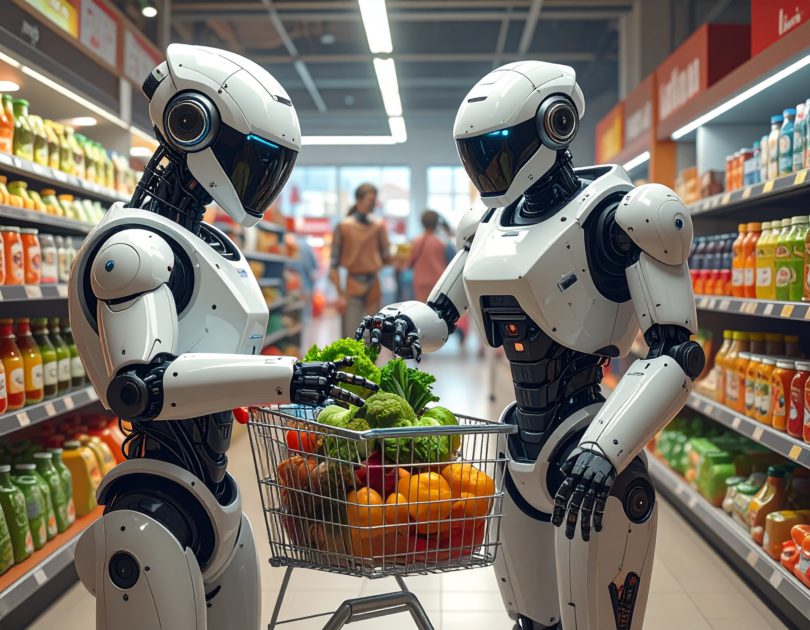When robots stumble on a soccer field or collapse mid-sprint at competitions like China’s first Robot Humanoid Games, it’s a reminder of how far technology still has to go. But behind the spectacle, robotics and AI are steadily reshaping industries in less flashy, but far more impactful, ways. One clear example is Picnic Technologies, the Netherlands’ fast-growing online supermarket.
At Picnic, fleets of robots quietly pick, sort, and prepare groceries, streamlining the process of getting orders from warehouse shelves to customers’ doorsteps. This approach has allowed the company, once a scrappy startup, to grow into a genuine challenger to giants such as Albert Heijn.
Picnic’s Chief Technology Officer, Daniel Gebler, recently sat down with TNW founder Boris Veldhuijzen van Zanten for a conversation while driving through Amsterdam in Kia’s all-electric EV9. Their discussion, captured in the latest episode of Kia’s Next Big Drive, offered a look inside Picnic’s journey and its philosophy on the role of automation.
Robots, Bananas, and Bottles of Champagne
Before robotics entered the picture, employees navigated vast warehouses on foot to collect each item for delivery. Now, in Picnic’s high-tech fulfillment centers in the Netherlands and Germany, robotic arms handle much of the heavy lifting.
Take the company’s new Oberhausen facility: it serves around 200,000 households and processes as many as 33,000 online orders daily, powered by 1,500 robots working in tandem with about 1,000 human staff. While automation handles the bulk of repetitive tasks, some orders still require human judgment. For instance, robots may struggle with orders that mix fragile items like crisps with heavy bottles of soda. To manage this, Picnic uses a product “whitelisting” system that decides which orders are best suited for automation.
So, will the robots eventually replace the warehouse staff?
“Absolutely not,” insists Picnic software engineer Jhon Mauro Gomez. “Our goal isn’t to replace employees but to make them more effective. Robots complement what people do.”
Rethinking Management in the Age of AI
Automation isn’t only reshaping physical labor—it’s also changing how teams are managed. Gebler, who holds a PhD in AI, believes that the traditional role of “management” may look very different in the future. Instead of top-down supervision, he envisions workplaces where employees have greater ownership of projects, acting as designers, builders, and operators of their own ideas.
This model, he argues, gives teams more freedom to innovate. At Picnic, developers already operate with this kind of autonomy, supported—but not controlled—by AI.
Why “AI-Free Fridays” Matter
Interestingly, Gebler also champions what he calls “AI-free days.” On these days, developers put aside their AI tools to practice human problem-solving and creativity. While algorithms are unmatched at crunching data, they can’t improvise or think laterally the way people can.
This philosophy reflects a broader truth: robots and AI are at their best when paired with human skills. Machines excel at repetitive, precision-driven work, while humans bring imagination, judgment, and flexibility. Together, they create a more resilient and adaptive workforce.
From handling bananas and champagne in grocery orders to experimenting with AI-free Fridays in the office, Picnic offers a glimpse into the future of work. It’s not about humans being replaced—it’s about reimagining how people and machines collaborate.

